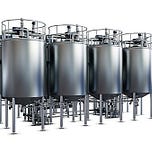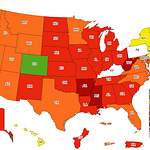Are you afraid of GMOs, genetic engineering, chemicals, toxins, heavy metals, hormones, and ultra-processed foods? Do you worry that we’re poisoning our kids, destroying our health, and fueling an epidemic of chronic disease—one bite at a time?
You’re not alone. But... what if you've been misled?
What if the real danger isn’t the food—but fear itself?
We've all seen the headlines: ultra-processed foods linked to obesity, diabetes, heart disease. But have you ever looked beneath the surface? What you’ll find are shaky foundations—food frequency questionnaires, vague definitions, sensationalized language, and wellness influencers who can’t tell the difference between a controlled trial and a juice cleanse. It’s time for a new perspective.
The future of food isn’t just about avoiding “chemicals” or “toxins.” It’s about intelligent, precise, science-backed, and nutrition-optimized foods. Foods that protect not just our children, but our environment & planet and the most vulnerable species. Foods that reduce suffering—not just human suffering, but animal suffering too.
Do you want to help make America a leader in sustainable food technologies, tackle global hunger, and combat climate change—without getting lost in the organic delusion? Then it’s time to rethink what "healthy food" really means. And here is the twist for your next food debate: the revolution won’t come from a farmer’s market. It will come from a lab—and it will be ultra-processed.
Are you ready to embrace the future? Use two words..
Precision Fermentation
🧪 Precision fermentation has the potential to revolutionize how we make food, being efficient, animal-free, climate-friendly—and yes, “highly processed.” Being highly-processed is not a bad thing.
We know how to make proteins without animals, farms, or slaughterhouses — and it might just help solve some of the biggest challenges in food production. But the kicker? To get there, we have to make food in a lab. With microbes. In big, stainless steel vats. That makes it, by definition, highly processed.
🧬 What is Precision Fermentation?
Think of it as brewing—but instead of beer, you’re making proteins.
Scientists take a gene that encodes a specific protein—like whey, found in milk—and insert it into a microbe such as yeast. This genetically programmed microbe is then fermented, fed sugar, and is turned into a protein factory.
After fermentation, the target protein is separated and purified. What you’re left with is the same protein you’d find in milk—but no cow was involved. No udder, no pasture, no methane. Just bioengineering and bioreactors.
And it’s not just milk proteins. Precision fermentation is being used to make other important proteins:
🥚 Egg whites — like those from The EVERY Company, which bind, foam, and bake like the real thing
🧀 Whey protein — used in Perfect Day’s animal-free dairy for cream cheese, ice cream, and even Starbucks creamers
💉 Insulin — one of the first precision fermentation success stories, dating back to the early 1980s
This technology promises real solutions:
🌱 Sustainability: Less land. Less water. Fewer emissions. No cows required.
🐮 Animal welfare: No factory farming. No slaughterhouses.
🧪 Food security: Custom proteins made anywhere, anytime.
And it’s not vaporware. These products are on the market right now. We’re talking about real ingredients.
😏 And Yet… It’s Processed
Here’s where the irony hits.
You can have a cruelty-free, climate-conscious, identical animal proteins… ...and someone will say:
“That sounds way too processed.”
And you know what? They’re right.
Precision fermentation is processed. Highly processed. Ultra-processed.
We’re talking about growing proteins in bioreactors, not barns—creating ingredients with purpose and molecular precision. This isn’t a bug, it’s a feature. Unlike traditional agriculture, these proteins can be tailored for functionality, nutrition, and safety, all without the baggage of salmonella, heavy metals, pesticide residues, hormones, or the environmental footprint of animal farming.
As a toxicologist, I’m deeply aware that all chemicals—natural or synthetic—carry potential risks. Nature isn’t inherently safe, and synthetic isn’t inherently dangerous. In fact, many of the most toxic substances known are entirely natural. I also know that common cooking practices, like grilling or frying, can produce toxic byproducts through pyrolysis, adding to the complexity of chemicals we ingest with every meal.
So what if we could change that?
What if food could be designed—intentionally—to minimize harmful compounds, reduce exposure to contaminants, and optimize nutritional value? Precision fermentation and related food technologies offer that possibility. Not just safe food, but cleaner, smarter, and more sustainable food.
It’s time to move beyond the knee-jerk fear of "processing" and start recognizing the potential of these innovations to create a healthier and more resilient food system—for everyone.
🥛 Maybe “Processed” Isn’t the Villain
It’s easy to dunk on processed food. The word carries baggage—fast food and shelf-stable junk. But maybe we’ve been painting with too broad a brush. Maybe what matters is how something is processed—and why. If the result is a protein that’s identical to one from a cow, but made without harming a single animal or warming the planet… ...is “processed” really the problem?
Or is it progress?
👋 Thanks for reading! If this made you think—or laugh—forward it to someone that still might be suspicious of cheese.













Share this post